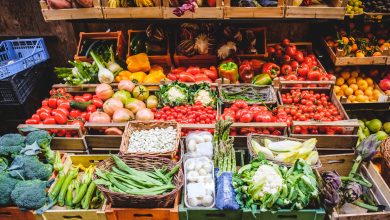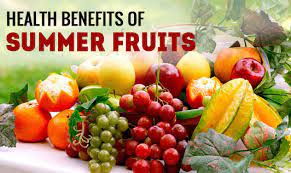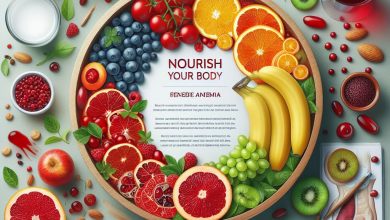The best winter fruits: what should be on your table
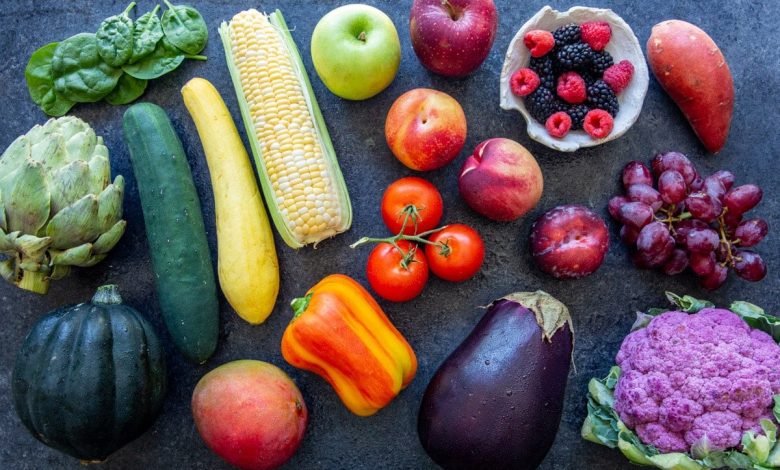
The onset of cold weather and calendar winter is a real test for our body. Weakened immunity, hypothermia, digestive disorders, inflammatory diseases – all this instantly affects our well-being and affects our appearance and mood.
How to support yourself during such a difficult period? As always, the gifts of nature come to the rescue – seasonal vegetables and fruits, which contain a full range of “anti-winter” nutrients. Include these foods as often as possible in your daily diet to replenish your body’s resources and gain additional strength!
Persimmon
This orange fruit is like a bright spot for gray winter days. Being a good source of fiber and vitamin C, persimmon helps us fight numerous colds this season, normalizes intestinal function and improves skin condition. Persimmon tastes great with cinnamon – this flavor can be included in winter baking. You can also cut ripe persimmon into slices and add to the salad, or you can boil, puree it and prepare a fruit sauce.
Beet
Winter is the time for root vegetables. The sweetish, deep taste of beets and their rich ruby color will decorate any dish with their appearance. Beets contain special antioxidants that help fight cancer, as well as large amounts of potassium and folic acid, which have a beneficial effect on the functioning of the cardiovascular system. Try lightly roasting beets with carrots, then simmering them with lentils, curry spices and herbs for a heart-healthy vegetarian dish.
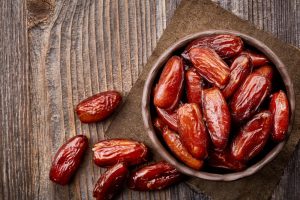
Pomegranate
Did you know that pomegranates are one of the oldest fruits in the world? Research shows that the benefits of pomegranate help reduce the risk of heart disease, stroke and high blood pressure, and regular consumption of pomegranate juice can clear cholesterol plaque from your arteries. Pomegranate will also look great in a salad or in homemade chocolate.
Kumquat
These tiny olive-sized citrus fruits that appear in the supermarket in winter contain a huge amount of antioxidants in their edible peel, useful in the fight against premature aging. And a serving of 5 kumquats contains 1/5 of the daily dose of fiber, potassium, vitamins A and C.
which will have a beneficial effect on dry skin in winter. Kumquat fits perfectly into salads, as well as into baked goods and dishes where the recipe requires orange zest – the taste of the dish will only benefit from this, becoming more complex and refined.
Grapefruit
Its juice contains large quantities of vitamins A, C, B1, B2 and a powerful complex of minerals. All this makes it useful for hypertension, for healing the liver and normalizing cholesterol levels. It improves appetite, strengthens the immune system, has anti-inflammatory and antifungal effects, improves blood circulation, heart condition and metabolism. Something new: Sprinkle pink grapefruit halves with cinnamon and brown sugar and eat them for breakfast.
Sauerkraut
When you take out another jar of sauerkraut from the cellar, feel like the captain of a ship, because once upon a time it was customary to prepare it for long voyages so that the crew would not get scurvy, a disease caused by a deficiency of vitamin C.
This was not just a myth, but a really working recipe, since cabbage is a good source of natural vitamin C, and it is during fermentation that its concentration in the product increases. And cabbage juice, rich in lactic acid, can support the immune system in winter, relieve sore throat, and reduce inflammation.
Onion
Onion from seven ailments – isn’t this about the winter state of our bodies? The star of soups, salads, and vegetable dishes, onions delight us all year round with their taste and aroma, as well as their low calorie content and high content of vitamin C and fiber. By the way, are you familiar with this method of preparing onions, called caramelization? In this form, onions will simply add new colors to the usual soup and warm salad, and will also be appropriate in the filling of pie and pizza.
Honey
It would be wrong of us not to include honey, a natural concentrated elixir for health, in the list of the best winter products. Just a spoonful of buckwheat honey will reduce coughing and give your child the opportunity to sleep peacefully.
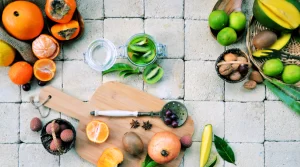
Honey has pronounced bactericidal properties and will soften inflamed mucous membranes. Honey works best when paired with lemon in the form of a warm drink, helping to lower the temperature, activating the immune system and increasing the body’s defenses. Linden honey, for example, will help reduce high fever, and heather honey will be useful for treating pulmonary diseases.
Dried fruits
Now our supermarkets are filled with fruits and berries for every taste, but previously every housewife tried to stock up as much dried fruit as possible for the winter in order to cook vitamin compotes and snack on such “sweets.” During the drying process, the vitamins of berries and fruits become more concentrated, giving dried fruits special benefits.
They also contain a lot of minerals – potassium, copper, iron, which we need for good heart function, as well as fruit acids and pectin’s, which normalize digestion. The only downside, perhaps, is that compared to fresh fruits, dried fruits contain significantly less vitamin C.
Tangerines
And New Year’s tangerines, so beloved by many, close our list. Tasty, bright, and uplifting with its aroma alone, tangerine is a quick way to get a good dose of vitamin C during the winter. If the cold has already taken its toll, then the beneficial substances of tangerines will help reduce the temperature and fight germs and viruses. Of course, you can eat the entire bowl of tangerines in one gulp, or you can also dip the pieces in melted chocolate or add slices to a salad.

